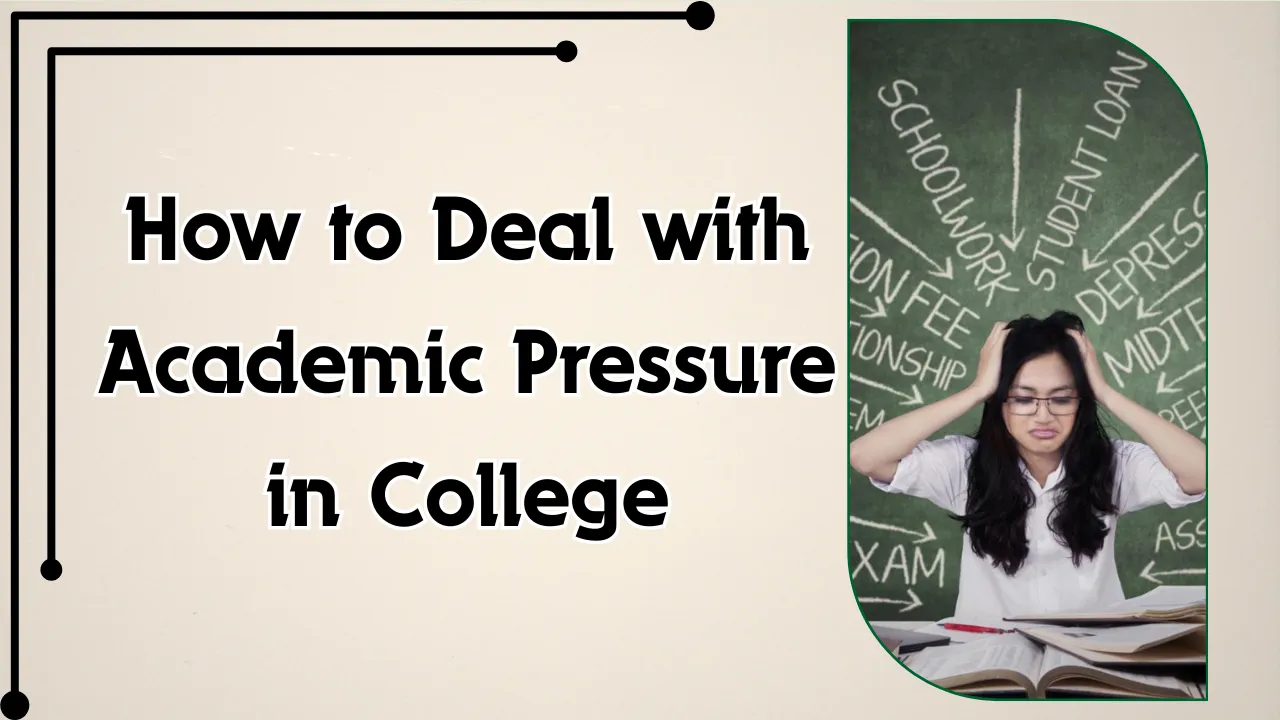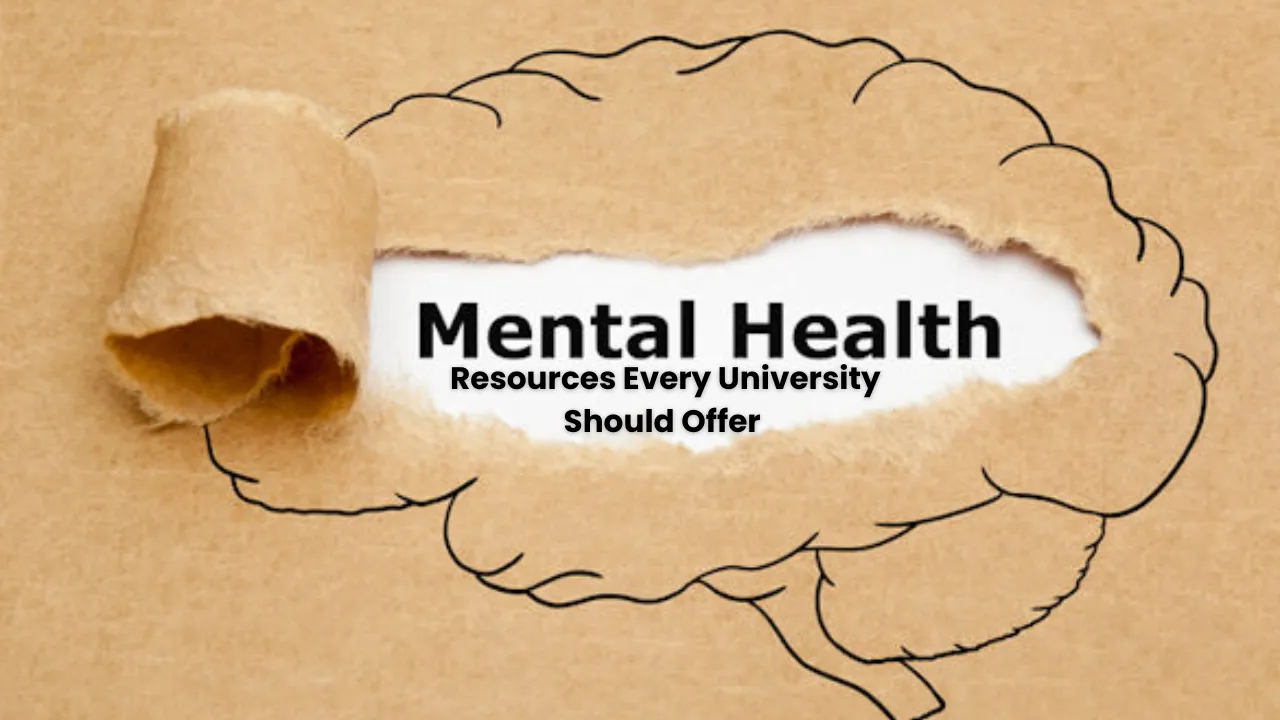How to Deal with Academic Pressure in College: How to deal with academic pressure in college is a concern that most students face at some point during their education. The transition from school to college comes with new responsibilities, tougher coursework, and the challenge of balancing studies with personal life. It’s no surprise that many students feel overwhelmed, anxious, or even burnt out.
This article offers practical solutions for how to deal with academic pressure in college. From time management and stress relief techniques to seeking support and maintaining mental wellness, we will explore effective strategies that help students stay focused, calm, and confident throughout their college journey.
Understand the Root of the Pressure
The first step in managing pressure is understanding where it’s coming from. Academic stress often arises from:
- Fear of failure or poor grades
- Overloaded schedule or multiple assignments
- High expectations from self, parents, or society
- Comparing yourself to peers
- Lack of clarity in goals or subjects
By identifying your specific stress triggers, you can address them directly instead of trying to fight everything at once.
Create a Practical Study Schedule
One of the most effective solutions for how to deal with academic pressure in college is developing a realistic and consistent study routine.
- Break down large tasks into smaller goals.
- Use a planner or mobile app to organize assignments and deadlines.
- Prioritize important tasks instead of multitasking everything at once.
- Include buffer time for unexpected delays or revisions.
Consistency beats cramming. Studying regularly in smaller chunks improves memory and reduces last-minute panic.
Stay Physically and Mentally Healthy
Your body and mind are connected. Taking care of one helps the other.
- Sleep: Aim for 7–8 hours of quality sleep to stay alert and focused.
- Exercise: Even 20–30 minutes of walking, yoga, or stretching helps release stress.
- Eat Right: Avoid too much caffeine or junk food. Choose balanced meals to fuel your brain.
- Relaxation: Practice deep breathing, meditation, or listen to music during study breaks.
Good physical health boosts mental strength and keeps burnout at bay.
Set Realistic Goals and Expectations
Many students feel pressure because they try to do everything perfectly. It’s okay to aim high, but it’s more important to be kind to yourself.
- Avoid comparing your performance to others. Everyone has a different pace.
- Learn from failures instead of fearing them. Mistakes are part of growth.
- Set goals that are specific, achievable, and time-bound.
- Celebrate small wins to build confidence and motivation.
Remember, progress is more important than perfection.
Learn to Say No
It’s tempting to join every club, help friends with assignments, or say yes to late-night hangouts. But too much on your plate increases pressure.
Learning how to deal with academic pressure in college means setting boundaries. Prioritize what’s important, and don’t be afraid to say no when needed. Protecting your time and energy is part of self-care.
Seek Help When Needed
You don’t have to face everything alone. Talk to someone when you feel overwhelmed.
- Professors or Mentors: Ask for help in understanding topics or managing deadlines.
- Counselors: Most colleges have mental health counselors available for free.
- Friends and Family: Sometimes, just talking about your stress can reduce it.
- Study Groups: Learning with peers can be fun and help clear doubts.
There’s strength in seeking help, not weakness.
Top 5 Techniques to Manage Academic Pressure
- Time Blocking: Assign specific hours for study, breaks, meals, and sleep to maintain a healthy balance.
- Mindfulness Practices: Spend 10 minutes each day doing breathing exercises or meditation to reduce anxiety.
- Digital Detox: Take breaks from social media or limit screen time to avoid distractions and pressure from comparison.
- Positive Affirmations: Remind yourself, “I’m doing my best,” or “It’s okay to make mistakes.”
- Gratitude Journal: Write down 3 things you’re thankful for daily. It shifts focus from pressure to positivity.
Recognize Signs of Burnout
Sometimes, academic pressure builds up slowly. Look out for signs of burnout, such as:
- Constant tiredness or sleep issues
- Lack of interest in studies or daily life
- Headaches, mood swings, or anxiety
- Difficulty concentrating
- Skipping classes or missing deadlines
If you notice these, take a step back, rest, and get support. Early action prevents long-term damage.
FAQs
Is academic pressure normal in college?
Yes, it’s very common. Almost every student feels pressure at some point, but the key is managing it smartly and not letting it take over your life.
What if I feel like giving up?
Take a break, talk to someone you trust, and remember why you started. Hard times pass. Support is always available.
Can poor time management cause academic stress?
Absolutely. Not planning your studies properly is one of the biggest causes of last-minute stress.
Are stress-relief apps helpful?
Yes. Apps like Headspace, Calm, or even Pomodoro timers can help you stay calm and focused.
What should I do if I fail an exam?
Don’t panic. Talk to your professor, review your mistakes, and adjust your study strategy. One exam doesn’t define your future.
Final Thought
Academic pressure is real, but it doesn’t have to control your college life. By understanding your limits, managing your time, and taking care of your mind and body, you can succeed without breaking down. These strategies for how to deal with academic pressure in college will help you stay balanced and motivated.
Got your own tips? Share them in the comments or pass this article along to a friend who needs support. Explore our wellness and student life section for more helpful guides!







